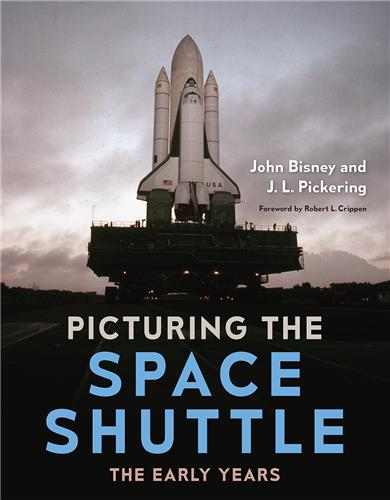
 The University Press of Florida have announced their early 2024 releases. Their spring and summer 2024 catalog is now available online for review.
The University Press of Florida have announced their early 2024 releases. Their spring and summer 2024 catalog is now available online for review.
As the official publisher for the State University System, the University Press of Florida (UPF) has been engaging educators, students, and discerning readers since 1945. UPF has published over 2,500 volumes since its inception and currently releases nearly 100 new titles each year. Upholding the values of their affiliate institutions of higher learning, UPF encourages the pursuit of truth, meaning, and self-determination while promoting interaction and a sense of community. The University Press of Florida continues to sow the newest seeds of scholarship while preserving important voices from the past.
During the March through August time frame, twenty-four titles are scheduled for release. Seventeen titles will be reprinted in paperback format.
Some of the highlights of the University Press of Florida early 2024 releases include the following.
New Releases for 2024
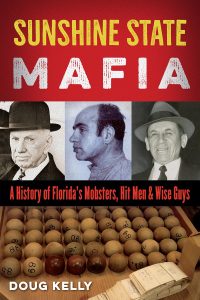 Sunshine State Mafia written by Doug Kelly. ISBN 978-0813080482, $28.
Sunshine State Mafia written by Doug Kelly. ISBN 978-0813080482, $28.
A vivid, wild ride through a century of Mafia lore, this book tells stories of organized crime rings that have settled in Florida and made the state their base of operations for bootlegging, gambling, extortion, money laundering, and drug running. Sunshine State Mafia divulges the hidden history of the mob from the Keys to Pensacola and Jacksonville.
 Selling Vero Beach: Settler Myth in the Land of the Ais and Seminoles written by Kristalyn Marie Shefveland. ISBN 978-0813080536. $29.95
Selling Vero Beach: Settler Myth in the Land of the Ais and Seminoles written by Kristalyn Marie Shefveland. ISBN 978-0813080536. $29.95
In this book, Kristalyn Shefveland describes how in the Gilded Age, Indian River Farms Company and other boosters painted the region as a wild frontier, conveniently accessible by train via Henry Flagler’s East Coast Railway. Shefveland provides an overview of local Aís and Seminole histories. These were rewritten by salespeople, and illustrate how agricultural companies used Native peoples as motifs on their fruit products. The book includes never-before-published letters between Vero Beach entrepreneur Waldo Sexton and writer Zora Neale Hurston. These letters highlight Sexton’s interest in story-spinning and sales.
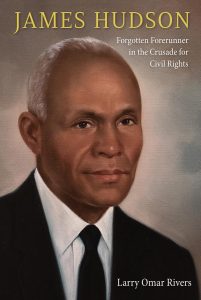 James Hudson: Forgotten Forerunner in the Crusade for Civil Rights written by Larry Omar Rivers. ISBN hardcover 978-0813079103, ISBN paperback 978-0813080642. $90 in hardcover, $35 in paperback
James Hudson: Forgotten Forerunner in the Crusade for Civil Rights written by Larry Omar Rivers. ISBN hardcover 978-0813079103, ISBN paperback 978-0813080642. $90 in hardcover, $35 in paperback
Drawing on little-used primary source documents and original interviews with people who knew Hudson well, Rivers examines how Hudson’s training at Morehouse College, Colgate-Rochester Divinity School, and Boston University shaped his scholar-activism, including his decision to become a Personalist philosopher. As Rivers shows, Hudson crafted an influential philosophy of life—a blend of Socratic inquiry, moral imagination, African American spirituality, and Gandhian nonviolence—that became an essential foundation for the rise of King, another Personalist philosopher. The book also sheds new light on the connections between the 1955 Montgomery Bus Boycott and the lesser-known 1956 Tallahassee Bus Boycott, which together helped spark the formation of the Southern Christian Leadership Conference.
 The Archaeology of Contemporary America written by William R. Caraher. ISBN 978-0813069968. $85.
The Archaeology of Contemporary America written by William R. Caraher. ISBN 978-0813069968. $85.
Opening with a case study of the excavation of Atari games from a municipal landfill in Alamogordo, New Mexico, Caraher invites readers into discussions of the archaeology of garbage, consumer objects, and digital music and video devices. He then synthesizes research on migrant camps, homelessness, military bases, residential school campuses, and urbanism, and offers a second case study: an examination of temporary workforce housing in North Dakota’s Bakken oil boom.
Now available in paperback
 Florida’s Peace River Frontier written by Canter Brown, Jr. ISBN 978-0813080604. $29.95.
Florida’s Peace River Frontier written by Canter Brown, Jr. ISBN 978-0813080604. $29.95.
For most of the nineteenth century, southwest Florida and the Peace River Valley remained a frontier as unknown to outsiders as the frontiers of the American West. In this book, Canter Brown, Jr. records the area’s economic, social, political, and racial history in an account of violence, passion, struggle, sacrifice, and determination.
Using such primary materials as government records, manuscript collections, and newspapers published throughout the country, Brown documents the presence of Native Americans and African Americans in the area in the aftermath of the First Seminole War. He examines the Civil War and Reconstruction periods, paying particular attention to the Union/Confederate, Republican/Democratic split among the area’s residents. In the final sections of the book he describes the arrival of the railroad and the growth of towns. The phosphate boom, and consequences of the Great Freeze of 1895 are also discussed.
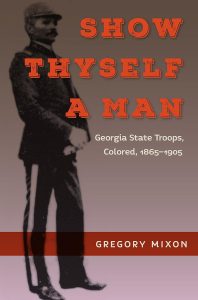 Show Thyself a Man: Georgia State Troops, Colored, 1865-1905 written by Gregory Mixon. ISBN 978-0813080628. $31.95.
Show Thyself a Man: Georgia State Troops, Colored, 1865-1905 written by Gregory Mixon. ISBN 978-0813080628. $31.95.
In Show Thyself a Man, Gregory Mixon explores the ways in which African Americans in postbellum Georgia used militia service after the Civil War to define freedom and citizenship. Independent militias empowered them to get involved in politics, secure their own financial independence, and mobilize for self-defense.
To see other posts of mine with University Press of Florida content, please click THIS LINK.
This post may contain affiliate links. If you click these links and make a purchase, I may receive a small commission. This commission does not affect any price that you pay. Affiliate programs or sponsors providing products do not influence the views and opinions shared in this blog..

 The University Press of Florida has released its Spring and Summer 2025 Catalog.
The University Press of Florida has released its Spring and Summer 2025 Catalog. Modern Art in 1940s Cuba: Havana’s Artists, Critics, and Exhibitions July 2025
Modern Art in 1940s Cuba: Havana’s Artists, Critics, and Exhibitions July 2025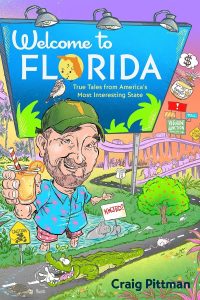 Welcome to Florida: True Tales from America’s Most Interesting State March 2025
Welcome to Florida: True Tales from America’s Most Interesting State March 2025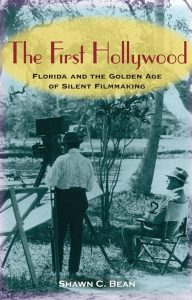 The First Hollywood: Florida and the Golden Age of Silent Filmmaking written by Shawn C. Bean. March 2025
The First Hollywood: Florida and the Golden Age of Silent Filmmaking written by Shawn C. Bean. March 2025









